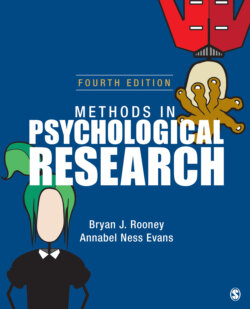Читать книгу Methods in Psychological Research - Annabel Ness Evans - Страница 98
На сайте Литреса книга снята с продажи.
Factor Analysis.
ОглавлениеFactor analysis is a correlational technique we use to find simpler patterns of relationships among many variables. Factor analysis can tell us if a large number of variables can be explained by a much smaller number of uncorrelated constructs or factors.
In psychology, one of the best examples of factor analysis is in the area of personality theory. What psychology student hasn’t heard of OCEAN? These five personality factors of openness, conscientiousness, extraversion, agreeableness, and neuroticism were described by McCrae and Costa (1987) as the only factors needed to describe someone’s personality. Though we may use hundreds of traits and characteristics to describe someone’s personality, these all factor down to just five unique dimensions. This factoring down was accomplished by factor analysis.
In factor analysis, the researcher is looking for underlying and independent factors that have not been directly measured to explain a lot of variables that have been measured. The procedure involves identifying the variables that are interrelated. Once the factors have been identified, it is up to the researcher to decide what construct this group of variables is measuring. These underlying factors are hypothetical—that is, inferred by the researcher. The researcher attempts to find the smallest number of factors that can adequately explain the observed variables and to determine the fundamental nature of those factors.
When you read a research report where factor analysis has been used, you will probably see a complicated-looking matrix called a correlation matrix. Don’t be discouraged. Keep in mind that although the mathematics are complex and beyond the scope of this book, the concept is reasonably simple. Can an underlying variable such as general intelligence explain a whole lot of variation in measures of mental abilities?
